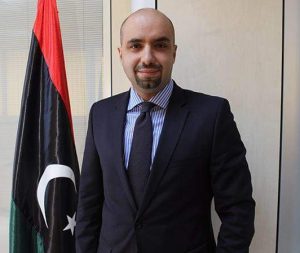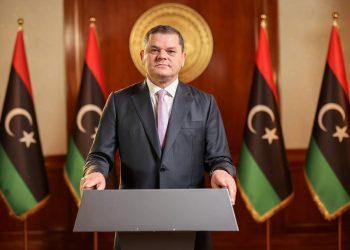By Sami Zaptia.

London, 20 November 2017:
The Managing Director of the Libyan African Investment Portfolio (LAP/LAIP) passed away last Thursday in a hospital in Malta after struggling with an illness over the last few years.
In September 2011, less than a month after the fall of the Qaddafi regime, Ahmed A. Kashadah found himself as managing director of the multibillion-dollar foreign investment fund of the new Libyan government.
Kashadah attended St. Andrew’s College in Cambridge UK and obtained two Bachelor of Science degrees from Queen Mary College of the University of London in engineering and business and the second from Oxford Brookes University in applied accounting. Subsequently, Kashadah qualified for affiliate status with the Association of Chartered Certified Accountants UK (ACCA).
Kashadah worked from 2007 to 2010 for the Libyan Investment Authority (LIA), as a member of the investment team as one of its creators. In 2010, he joined Kashadah & Co., a Libyan accounting and consultancy firm founded in 1974. Later in 2010 he joined the General Investment Fund (GIF) as deputy CEO, developing the fund strategy and setup. He held the position of chairman of Libya Arab Airlines between 2012 -2013.
LAP is a multi-billion-dollar capital investment fund that was created by the former Libyan regime in 2006 with an initial capital of US$ 5 billion. LAP owns various activities across diverse sectors, such as airlines, banking, hospitality, oil and gas, trade, and telecommunications.
LAP had a significant investment presence on the African continent and under its telecom arm, LAP Green had invested in Zambia, Uganda, Niger and Ivory Coast. LAP Green has subsequently been transferred to the state telecoms holding arm, LPTIC. LAP had also invested in these regions in other sectors mainly in hospitality, oil & gas and others.
When Kashadah was first appointed as managing director of LAP in September 2011, he told Libya Herald that he had to overcome huge difficulties. First, were the effects of the revolution: ”When we first came to LAP the building was looted, so we had a serious loss of documentation”. Next, it was discovered that ”LAP had no clear financial statements. Transparency had to be restored and confidence regained. Finally, during the revolution many of LAP’s assets were frozen by foreign governments.
Kashadah had to fight internal battles as its office was occupied in Tripoli by an opposition faction who had attempted to take over control of the investment arm. It forced Kashadah and his small management team to relocate to Malta as factional fighting split the country into two and three competing governments. He also had to fight a number of overseas court cases to safeguard LAP assets.
Addressing the Crans Montana Forum on Africa and African Development in Brussels, Belgium, last spring, Mr. Kashadah highlighted the new strategies developed to conduct the LAP as a ”professional investment portfolio with no political or personal interests”. He also briefed the forum on how ”LAPs image has been improved as a result of the efforts of LAP Group teams.”
Kashadah explained that ”by law LAP is not allowed to invest in Libya. We have an exemption from this law in two of our subsidiaries, but generally by law we cannot invest in Libya.” Instead, Kashadah said, ”LAP is a future generation fund that is trying to help the country diversify its income away from oil.”
The goal of LAP, therefore, according to Kashadah, is to ”build a strong fund that acts like a private equity fund but is not really private equity. The difference between a private equity fund and LAP is that a private equity fund would build businesses and they would sell them. We build businesses to stay and add value to the regions that we enter.”
Explaining further, Kashadah said ”We are trying to build a healthy future generation fund. We believe in the importance of investing in the neighboring countries, we share geography and more than that we share religion and history in some cases with these countries.”
Speaking at the Mediterranean Business Network Forum in Malta in December 2016, and commenting on how to restart Libya’s economy and investment climate Kashadah said ”We Libyans need to do the hard work. We keep asking for help. Help will not come if we do not do the hard work. We (not others) have to do the hard work. We need to stand up against all this mess.”









